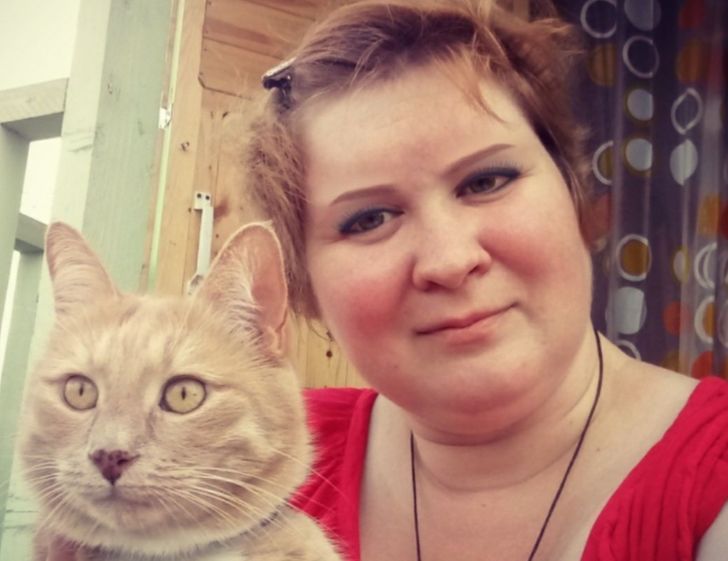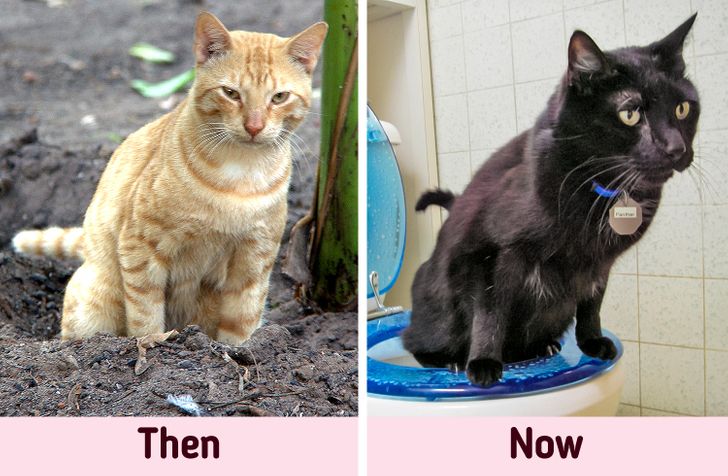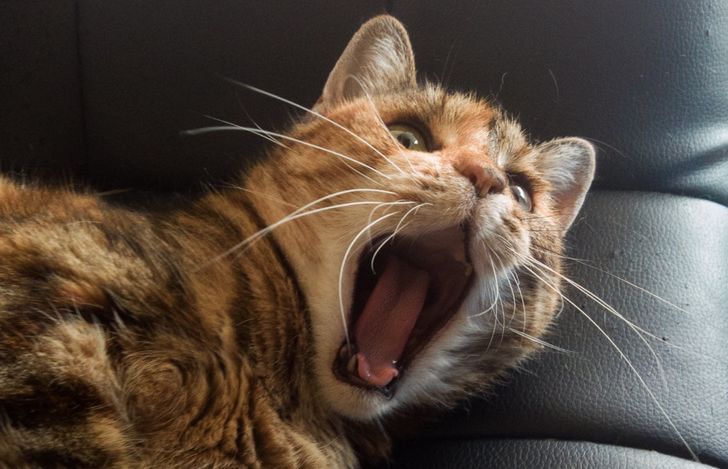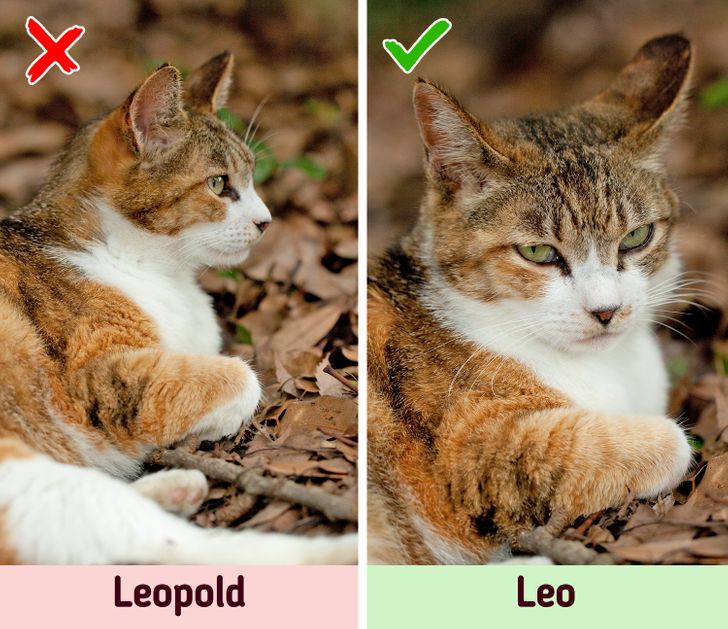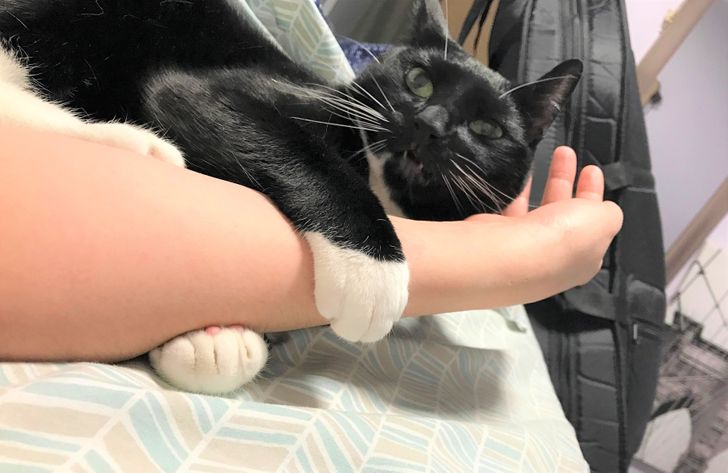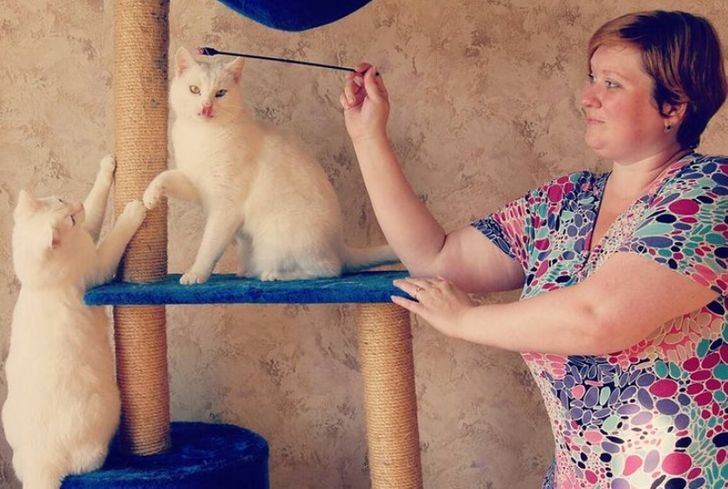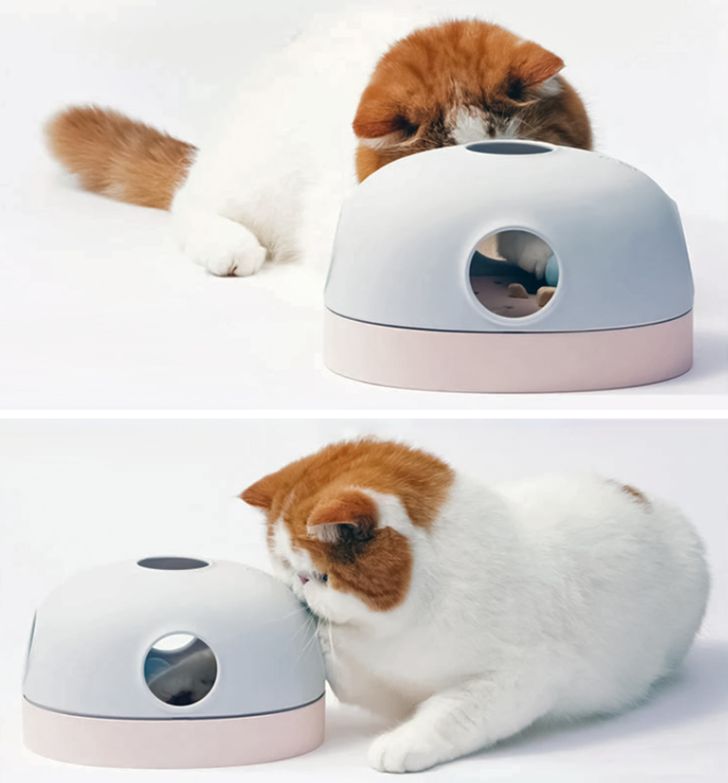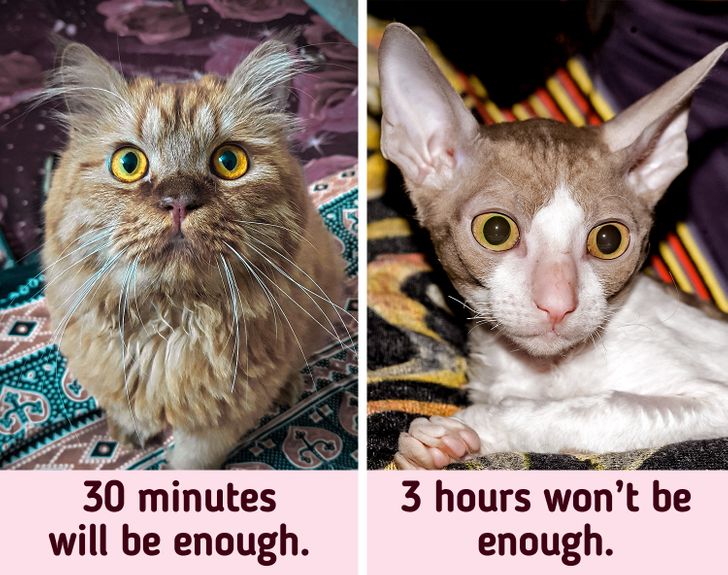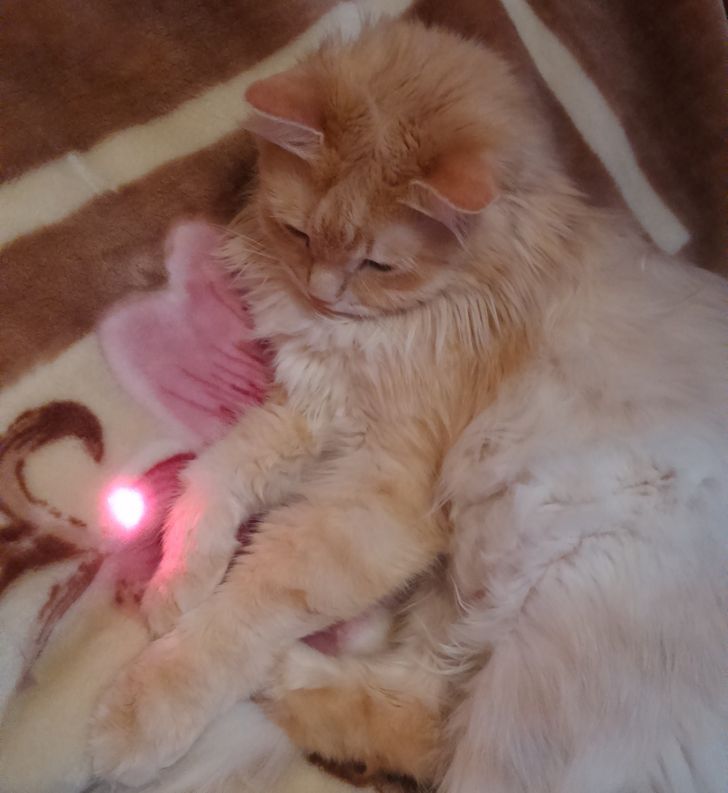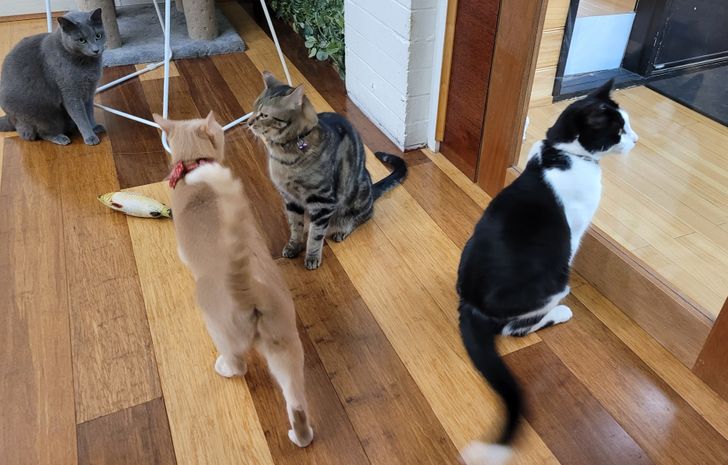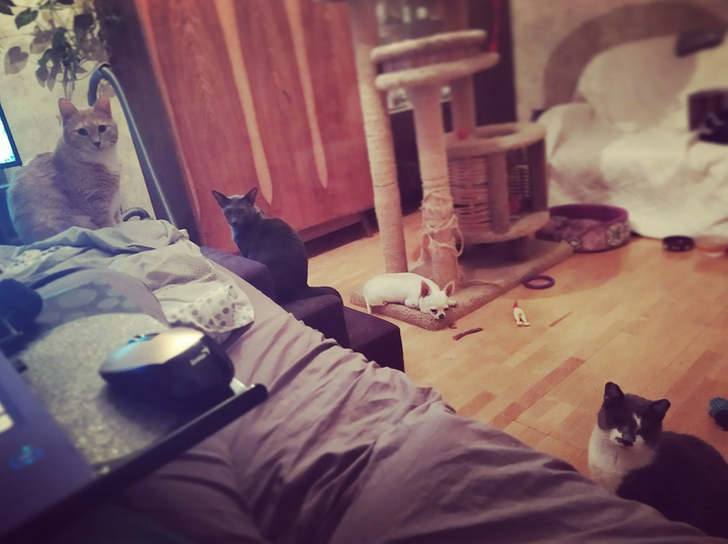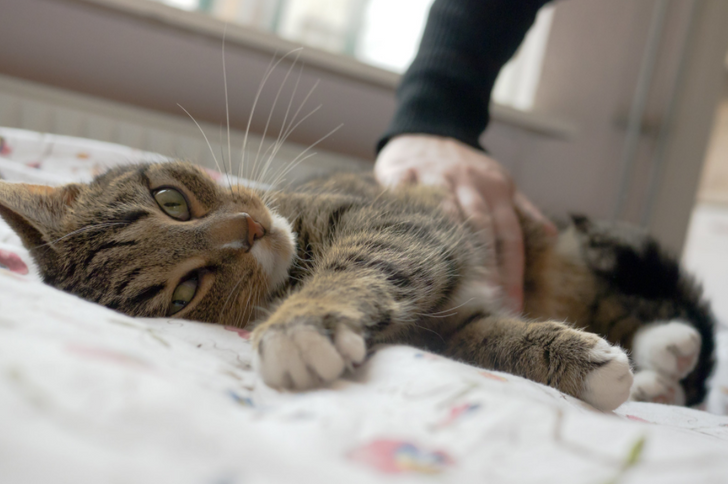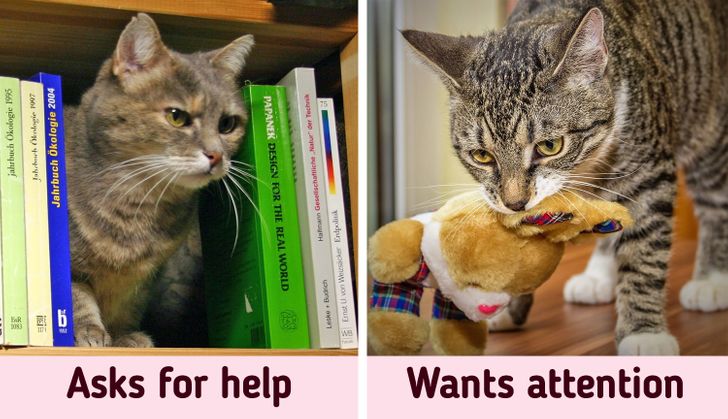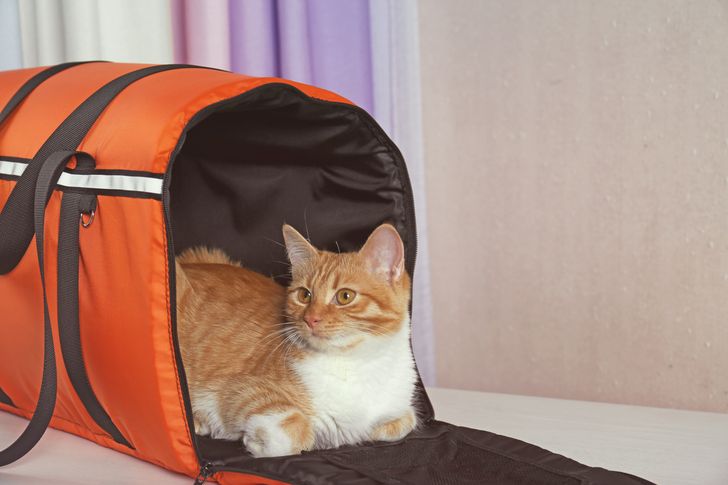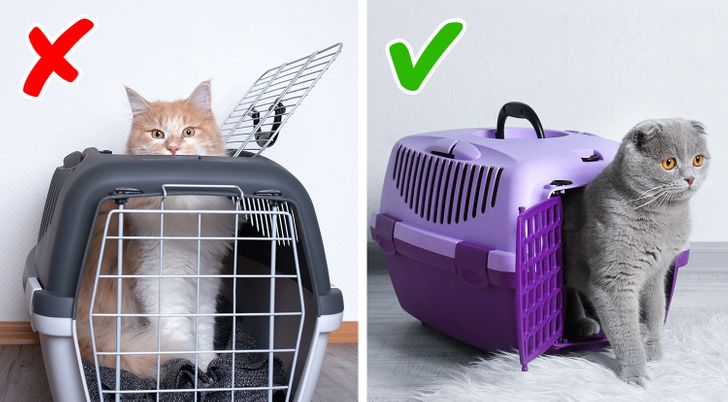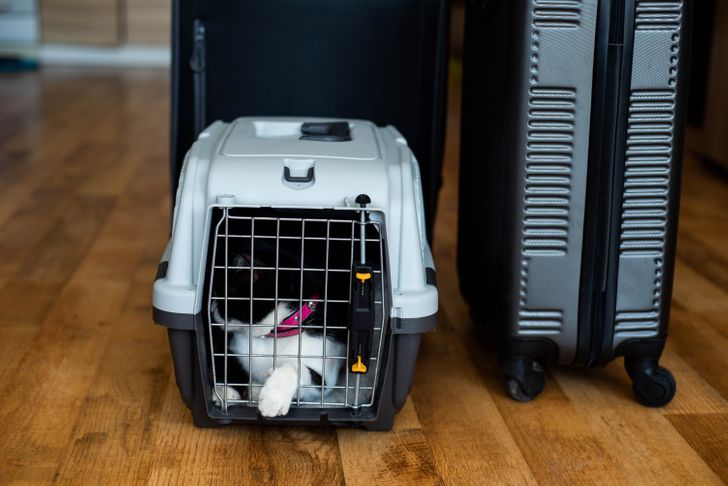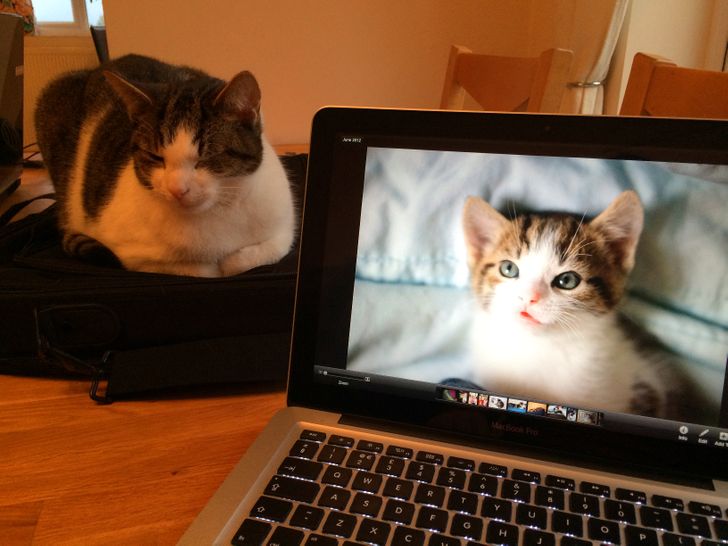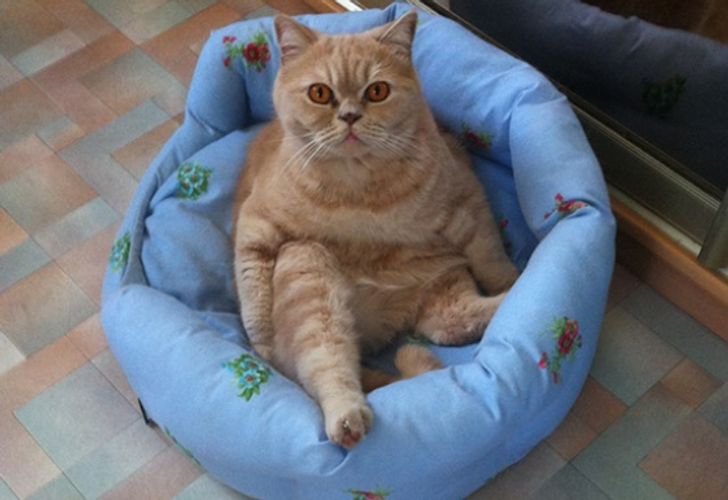I have 2 females cats, Hollie and Jazzy. My girl Jazzy will mainly answer me if I call her Jazzy girl and I would like to show u my cats! but I have waaaaay too many pics to go through to find them, in real sorry
I’ve Been Working as a Zoo Psychologist for 11 Years and I Want to Share the Unexpected Things Every Cat Owner Should Know
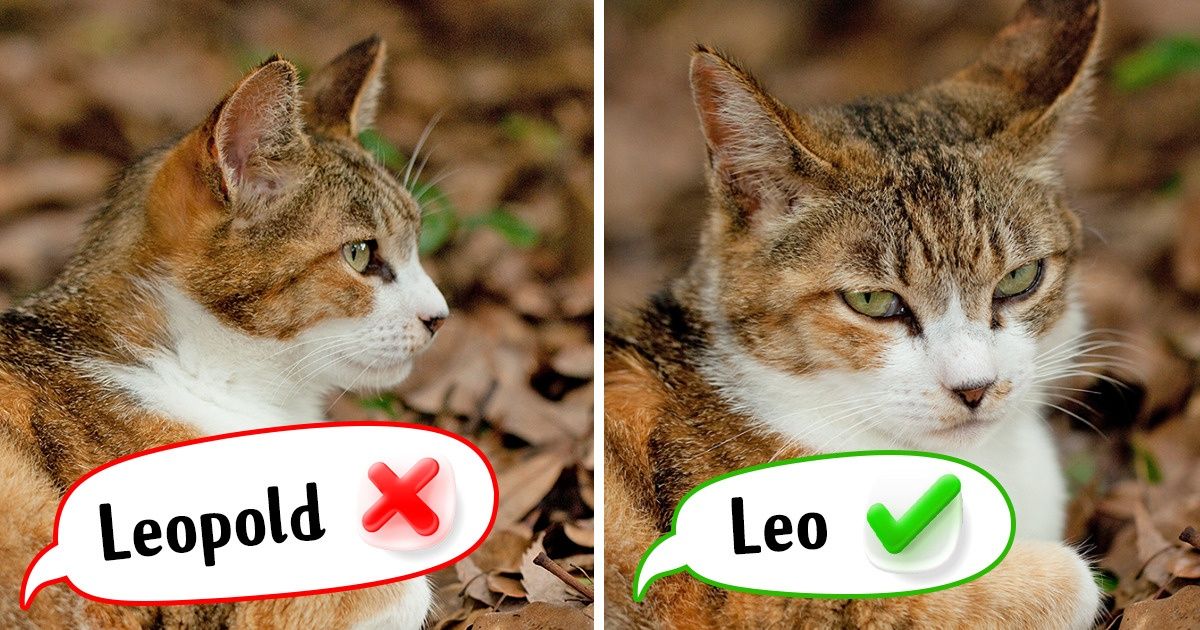
Many cat owners complain that their animals behave extremely badly: they push things off shelves, bite their humans aggressively when they pet them, and refuse to play with expensive toys. We get angry at our fluffy hooligans and oftentimes don’t realize that they are trying to say something or search for help from us with their behavior.
My name is Tatiana Kulikova. I have been working as a zoo psychotherapist and correcting cats’ behavior for 11 years. I give consultations, have a blog, and share my experience on Instagram. Today, especially for Bright Side readers, I am going to discuss how to find a common language with your lovely pets and how to make their lives happier.
1. Why cats should live inside a home
I often hear an opinion, “A while ago, cats would live on the streets, they would eat scraps, and no one would bring them to the vet. And it was fine, they would live for 20 years! They also wouldn’t poop in corners and wouldn’t get sick at all.” Let’s try to find out what has changed.
Previously, cats were free-range, and they satisfied their basic needs outside. If a cat wanted to mark its territory, they would do it outdoors, not indoors. They would hunt for mice and birds, which is why milk and canned fish didn’t affect the cat’s diet very much. Cats would climb trees, communicate with other cats, mate with other cats, and fight. Animals had very little contact with humans and we didn’t know much about them.
Once, my cat gave birth to kittens and they all lived in our home for 7 months. There were 2 little litter boxes in the kitchen and one more in the bathroom. Every time I returned from school, I would clean all the puddles around those litter boxes. And no one was surprised. We were sure that some cats simply can’t use litter boxes. But later when 2 of the kittens were adopted, these puddles miraculously disappeared. Of course, we jumped to the conclusion that we were lucky to get rid of those 2 hooligans. But had we added more litter to the litter boxes or increased the number of litter boxes, we would have gotten the same result.
Animals live in homes and can’t satisfy all of their needs. They feel stressed due to the people, a deficit of activities, and incorrect upbringing methods.
Also, I often hear that cats would rather live outdoors and that they find it hard to live indoors. But genetically today’s kitties are no longer those wildcats who can survive in extreme conditions. Humans have been domesticating cats for 9,000 years. Moreover, within the last 200 years, humans have bred new breeds that feel good indoors, but that wouldn’t be able to survive outdoors. Cats are happy to be at home and they don’t want to know anything about street life and the dangers it hides.
2. How to not grow a hysterical kitty
Oftentimes, cat owners provoke their 4-legged friends’ tantrums. This is because humans react to tantrums faster and brighter than to their pet’s constructive behavior. If a cat is quietly meowing near the front door, owners are ready to wait for a while and not let their beloved kitty go outside, especially when the weather is bad. But if the cat starts to fall on its back, rolls its eyes, and scream in a weird voice, the owners’ heart can’t stand it and they let the cat go outside. The kitty quickly understands which type of behavior works best and starts to throw tantrums for any occasion. That’s how we end up getting a hysterical cat who is “stressed” by all the things around her.
Set simple rules and follow them. For example, “don’t let your kitty outside on any condition.” If you stick to this rule for a couple of weeks and if you ignore all the tantrums, you’ll see that your kitty will feel much better. After all, nothing scary happens to a cat if it is not allowed to go outside or if it is prohibited from entering a room.
3. Does a cat need a name?
Cats recognize their names even if they ignore them. When there are several pets at home and they are called in the same way and none of them has their own name, an animal can’t understand that you are addressing them. This prevents the formation of a good emotional connection with their person. If the cat lives alone, the situation is not as critical.
But I often notice the absence of the connection between a cat who has no name and its owner. The choice of the name is always a sign that the person is interested in their pet. If the owner doesn’t care about what to call their pet, it means they are also not interested in the pet’s unique character.
The ideal name should consist of 1-2 syllables and should have some hissing sounds like s, z, sh, ch: Shadow, Blanche, Sunshine, etc. If your cat’s name is Leopold, he will respond to Leo. Would you like to try it on your pet?
Oftentimes, people adopt a kitten, define its gender incorrectly, and eventually get a tomcat with the name Bella, or a kitty with the name Jack. I am frequently asked whether the animal will have psychological trauma if they are given a new name. They won’t. But it’s better to give a name that will sound similar to the previous one like Jack — Jackie, for example.
4. What to do if your cat bites you out of love
Sometimes a kitty might get on your lap, begin to lick your fingers, and after some time start to bite them. This means that the animal got overexcited about petting. The reasons can be different: hormones, unspent energy, your inattention.
If you are petting a cat and it starts to get more and more excited, which can manifest in headbutting you, rubbing against you, waving their tail, or getting ready for a bite, stop petting the cat immediately. The thing you shouldn’t do for sure is pat the cat on her muzzle. The cat will perceive it as an invitation for a fighting game.
In order to eliminate this issue, you need to find and eliminate the reason. If the animal is not castrated, you need to castrate it. If you don’t play enough with the pet, you need to start playing at least 30 minutes a day or buy an interactive toy for your cat.
5. Why cats ignore fishing poles and puzzle toys
A fishing pole for cats should resemble prey, make attractive sounds (squeak, rustle, chirp), and move toward the cat. No prey jumps straight into a predator’s mouth. Move the pole as if it is running away from the cat. Even if the kitty is simply watching the toy, it is also considered a game. Wild animals don’t run after their prey like crazy, they can sit in ambush for hours and then make one precise jump.
In order to make your pet play with a puzzle toy where you put their food, they need motivation. The cat should be hungry and it should be willing to go get the food. If the cat has constant access to its food, the toy can work in 2 cases: if you start putting all the food inside the toy or if you put the tastiest pieces inside the toy.
The idea of the puzzle is to generate self-motivating behavior. The cat makes an effort (gets the food) and gets a reward (eats a tasty bite). If the animal fails to get the tid-bit at first, help them.
It’s necessary to regularly play with your pet. It should be 2 hours a day with kittens, 1.5 hours a day with cats from 1 to 7 years old, and at least 30 min with cats from 7 to 12 years old. Take into account the pet’s activeness and the specifics of the breed. For example, a Cornish Rex can play for 3 hours a day and it still won’t be enough for him, while a 6-month-old Persian cat will be happy with 30 minutes.
6. Is it true that laser pointers cause depression?
A cat who can’t catch its prey will be extremely disappointed. And the red dot from the laser pointer can’t be caught! It can reduce the cat’s self-esteem and raise doubts about the safety of their environment, which can result in them developing depression or aggression.
But you can avoid it if the laser pointer is not the pet’s only entertainment at home. Include the game with the laser pointer into a standard half-hour session with the fishing pole. I recommend that you first play a bit with the pole and then with the pointer and again with the pole to gradually finish the game.
Many cats behave inadequately while playing with a laser pointer and even afterward. They pant, whirl around in one spot, can’t calm down for a long time, run around the house with wide-open eyes trying to find the dot. If your cat behaves this way, you either play too little with them (mostly with the laser pointer) or they have a weak nervous system. It can be both options at once. In these cases, you should exclude a laser pointer from games with your cat and use only tangible toys like a fishing pole.
7. How to make cats become friends
Cats are territorial animals. Their instincts say that they should be the one who possesses the territory, especially when it’s a small apartment or house. They see a competitor for resources or even an enemy in any new pet. That’s why they can often show aggression and fear.
Your first reaction means a lot for the future relationship between pets, that’s why I recommend introducing them to each other right from the doorstep. It’s better to do it gradually according to the scheme “one feeling-one step.” Place the pets in different rooms so that they don’t hear each other. Afterward, pet each of them with a kerchief and introduce them to each other’s smells: bring the kerchief with the pheromones of the new cat to the old one and vice versa. The third step will be to “exchange” the cats’ rooms so that they can inspect the enemy’s territory.
I oftentimes see cat owners thinking about getting the second cat only because their current kitty gets along well with people and likes to be around them. They think that by doing this, they will make their pet happy and find him a friend. But cats’ love for humans has nothing to do with their love for other animals. Moreover, a kitty who likes their humans’ attention may not want to share it with someone else. That’s why you should first try to find out your pet’s attitude toward other animals before getting a buddy for them. Perhaps their only and best friend is you?
My cats waiting for their owner to finally stop working
Don’t humanize cats and think that they have some warm feelings toward their parents and siblings. They don’t have them. Once puberty comes, any kitten turns into a competitor for resources. If there is no visible competition between them, it’s just about good luck, it has nothing to do with their kinship.
8. Do cats feel sad about other buddy cats who’ve passed away?
Cats do long for their late buddies but not the way humans do. An animal who lost a member of a group feels stressed due to their suddenly changed life conditions. The territory of the other cat is now available and it’s not clear whether they can cross it. The hours that used to be filled with games are now empty and dreary. If you bring home a new cat, it will also cause stress.
Play with your pet during those hours that he used to spend together with the late buddy. Behave in a normal manner and don’t change the schedule that you have. Also, make sure to hold back your emotions in front of the cat. After all, they feel your sorrow too.
Over time, the cat will calm down and form new rituals — that’s when you can start thinking about getting another kitty. But this kitty shouldn’t be there for entertaining the first one; they should be there for you — if you really want to get the second cat.
9. How to understand if a cat is missing something
My clients often complain that their cat always gets on shelves and pushes something off of them. Kitties can also get on the microwave oven or try to sit on a thin TV set. The animal is scolded and asked to go away, but nothing changes. Oftentimes, the reason for calling an expert to such homes is a conflict between cats. There is a reason for any cat’s action and conflict. The kitty is showing she needs vertical territory because she or he feels safe there. Owners can fulfill this request by installing several shelves there.
When I see that a cat carries a toy or a piece of paper to its owner like a dog, I don’t get surprised and don’t get delighted either. I instantly come to the conclusion that the animal lacks attention and it doesn’t have any games in life. Pets who are played with on a regular basis don’t need to run after their owners with a toy in their mouth. They also don’t have to leave toys in visible places just to make sure their human comes across them and remembers that they should play with them.
10. What are the differences between various carriers?
I used to have a carrier bag with a zipped mesh door. I sewed it up 2 times and then gave up because my cats would tear it off too often. One cat could even open it with his muzzle by pressing the mesh from the inside. It is much hotter than outside in this kind of carrier in the summer because it lacks any ventilation.
Another type of carrier is a backpack where the cat looks like a spaceman. It has already conquered many people’s hearts. It is convenient to carry, the cat has a window, what else does one need to feel happy? Turns out, cats also need to change the position of their body and the chance to breathe normally. Some time back I used to dream about getting this kind of backpack too, but now I am saying “No” to it.
Carriers that open on top are the most dangerous ones. The animal can push out even the most reliable top, not to mention weaker constructions. The door should be located on the side.
An ideal carrier should have a metal door, wide clips on the sides, a 2-button lock, and good ventilation. Most experts recommend the model that you can see in the photo below. These products are certified for flights and auto transportation. Their only disadvantage is their weight.
11. The question of the century: Do cats feel jealous of us?
Dogs are capable of perceiving humans as another species but this fact hasn’t been proven regarding cats. As a rule, they behave with us the same way they behave with other cats. And cats don’t feel jealous of each other. Cats are solitary animals who don’t form permanent couples in nature and who conduct promiscuous intercourse. A cat may have kittens from different fathers in the same litter. They don’t need a tool like jealousy to survive. At the same time, protecting resources is very important for them.
Cats perceive us as a resource or a valuable source of resources. That’s why it might sometimes seem to you that your cat is feeling jealous of you when you are petting another kitty or when you bring home another pet.
Oftentimes, owners reinforce resource-protecting behaviors in animals by identifying their favorites. In this case, the behavior of their 4-legged friends resembles jealousy for them even more. After all, owners themselves know that they love Molly more than Sooty, especially when they pet Molly, and Sooty comes up and starts to beat up Molly. This behavior convinces owners that they are dealing with jealousy.
In fact, it might not even be connected with petting but with a long-lasting conflict between the animals. Molly sitting on the owner’s lap is the last drop in this conflict (Sooty feels that Molly has taken everything, even their owner). If you share your resources correctly, Sooty won’t care whether their owner’s lap is occupied by Molly. Sooty might not even like to sit on their owner’s lap.
Animals communicate with us using body signals, smells, and sounds, and we are not always able to correctly decipher their messages. But being humans the ability to think in the abstract and other cool things in our brains, we can at least try to understand other species. Enjoy this activity, don’t humanize our 4-legged friends, just simply learn their language.
Are you capable of finding a common language with your pets? Please show us your kitties in the comments and make sure to tell us about their character as well!
Comments
in the first place, I didn't even know there are zoo psychologists 😨
Related Reads
13 Red-Headed Actresses Who Tried a Different Hair Color but Proved That Ginger Is Their Calling Card

20 Ironic Comics From an Artist Who Knows Firsthand What Motherhood Is All About

10 Unexpected Things That Came Back to Us From the Past Like a Boomerang

15 Everyday Things That Have a Hidden Purpose
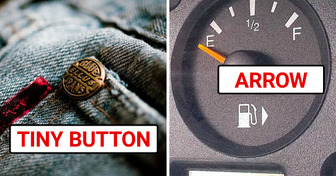
I Refuse to Sacrifice My Retirement to Help My Unemployed Son, I’m Not His ATM

I Refused to Let a 5 Y.O. Attend My Daughter’s Party—Now They Say I’m Cruel

12 Moments of Kindness More Rare Than a Solar Eclipse That Show a Kind Heart Can Change the World

10 Teachers Who Learned Life Lessons From Their Remarkable Students

My DIL Pretended She Doesn’t Know Me in Public, and It Shattered Me

18 Stories That Prove Simple Kindness Is the Loudest Statement of All

14 Dates That Started Like Movies but Ended Like Sitcoms

My Parents Refused to Support Me Through Med School—Then I Discovered Their Sad Secret

